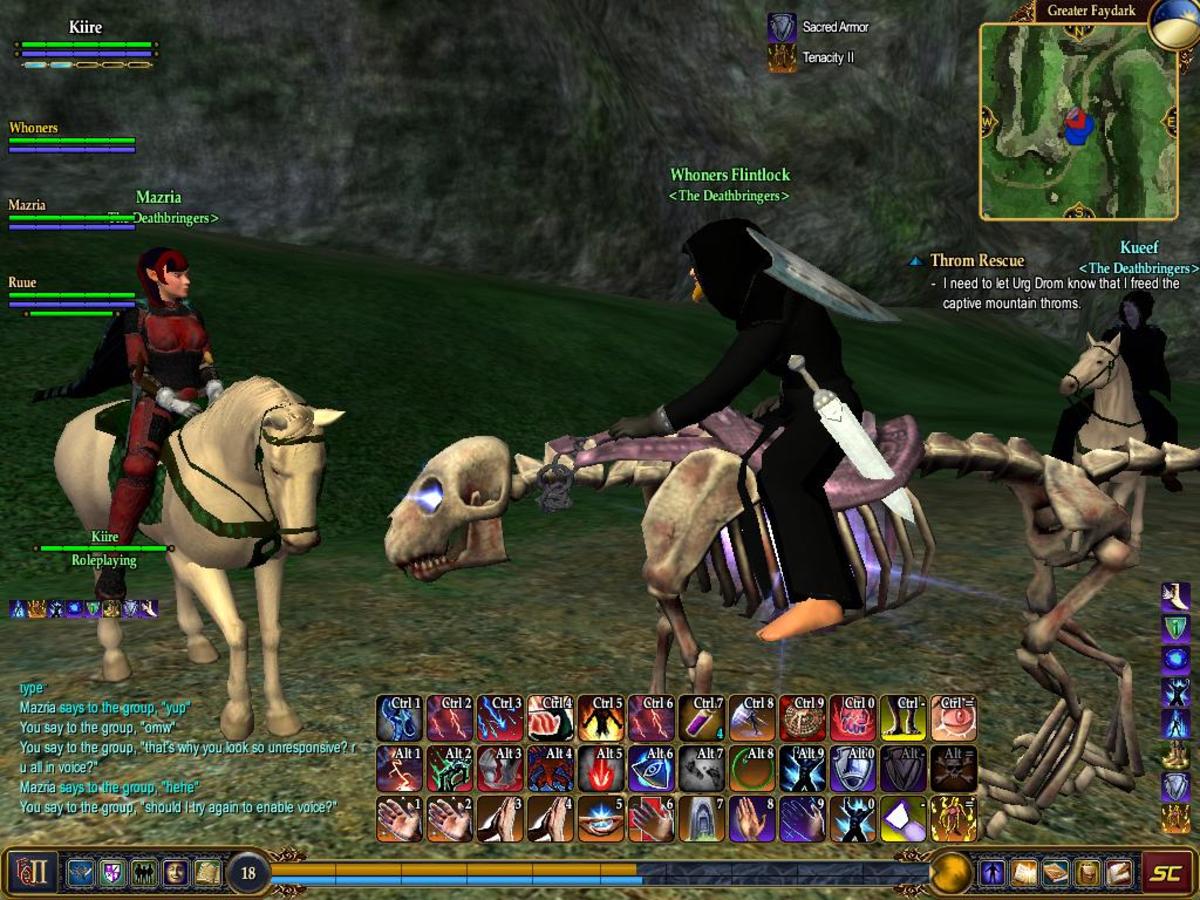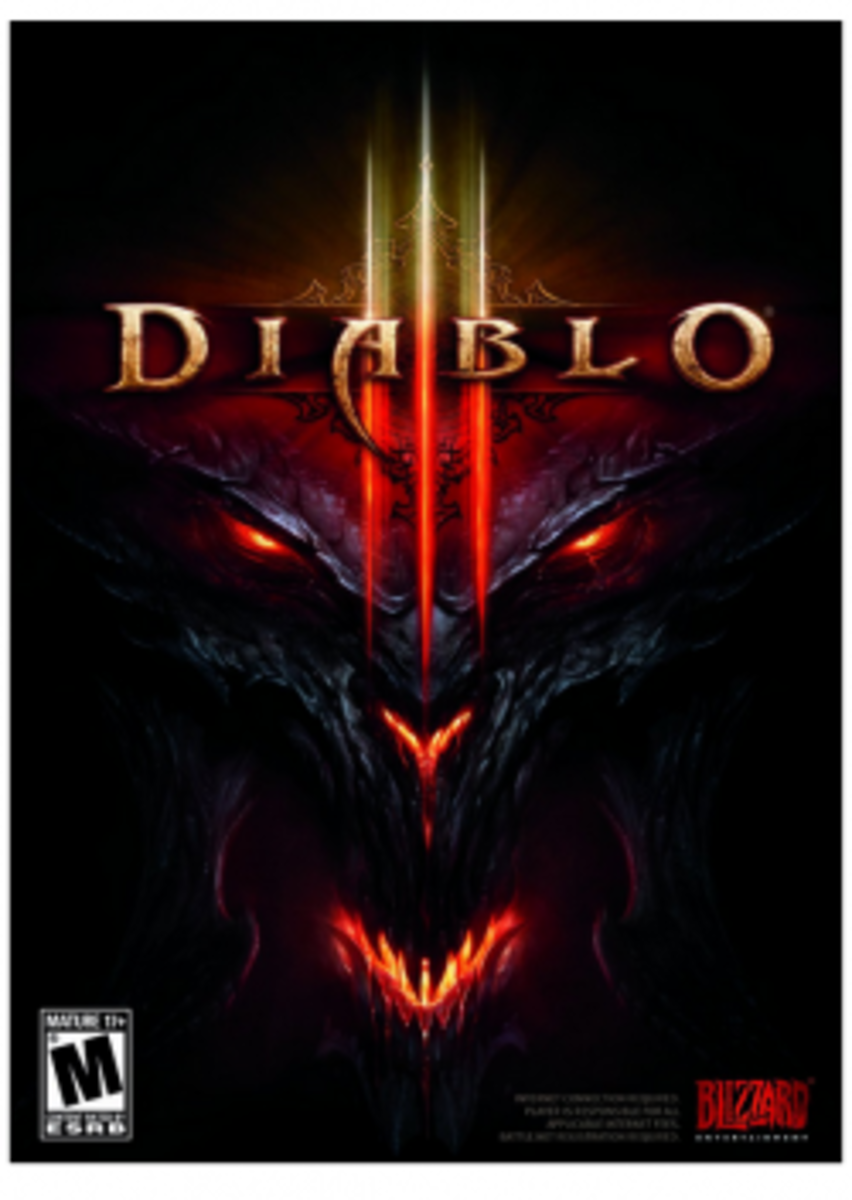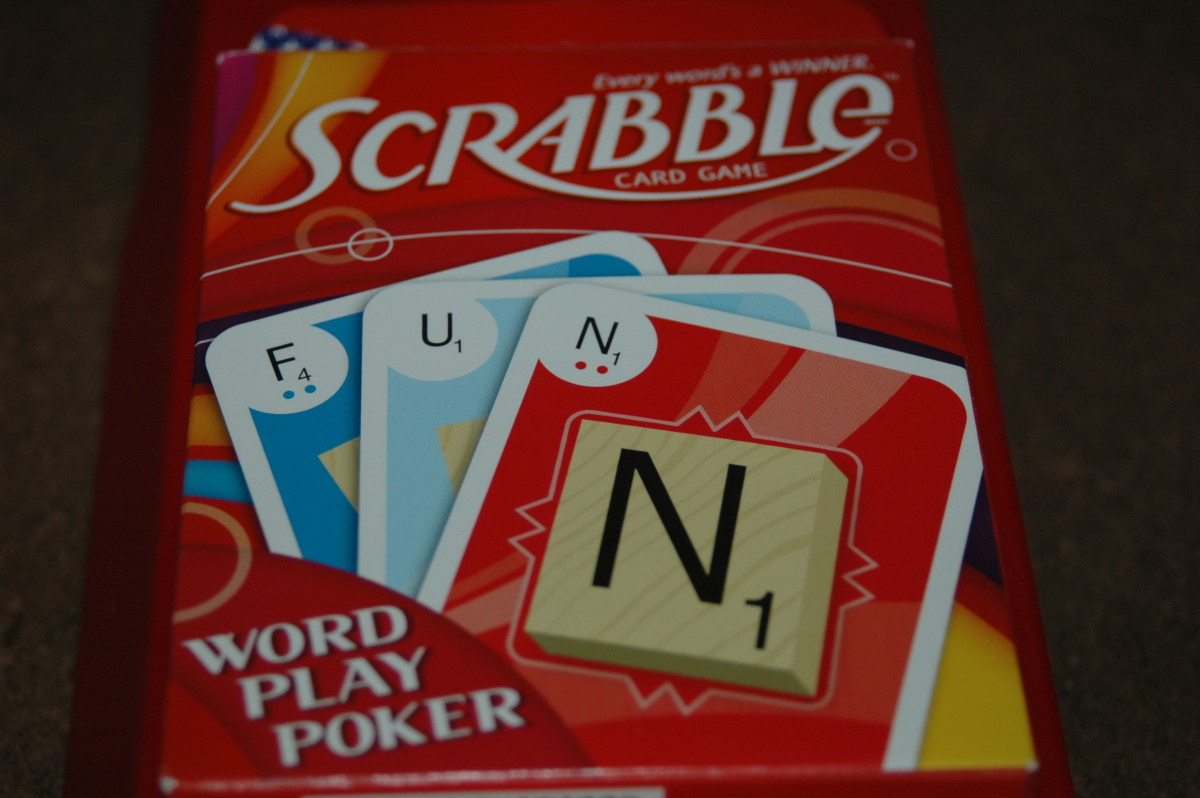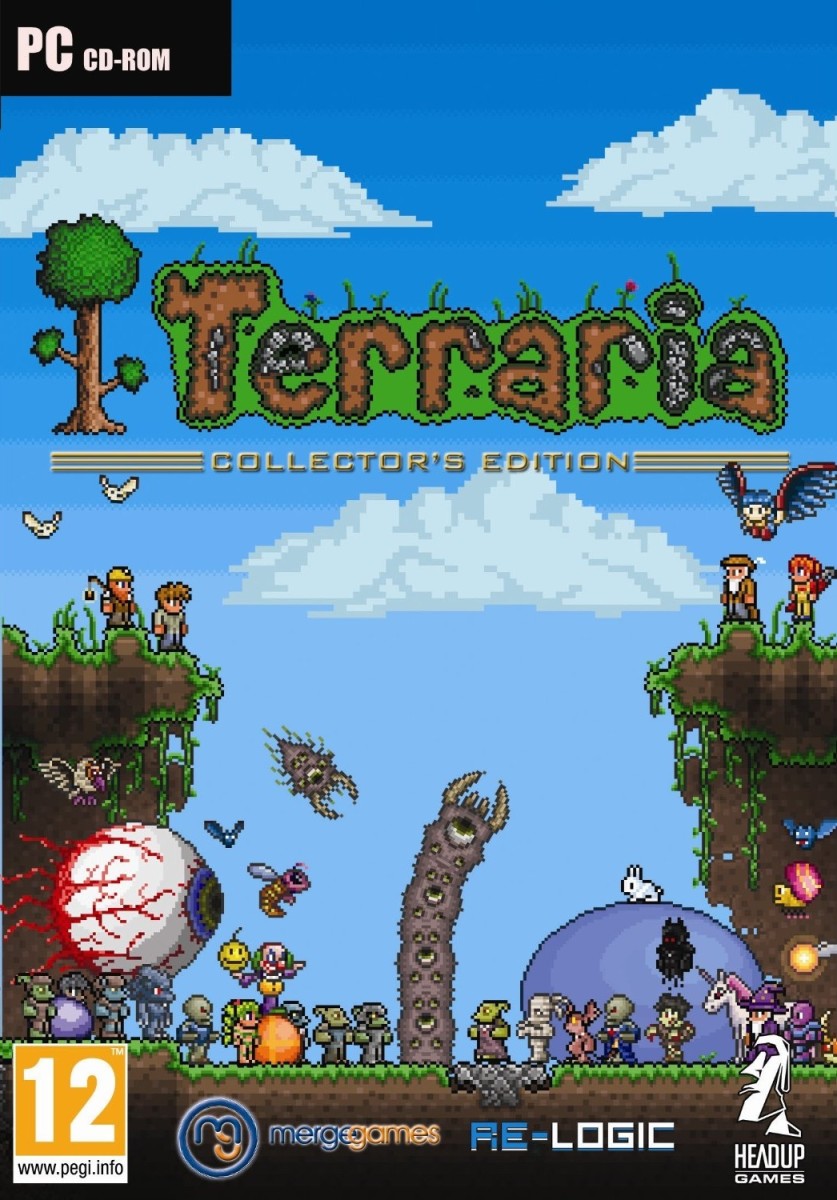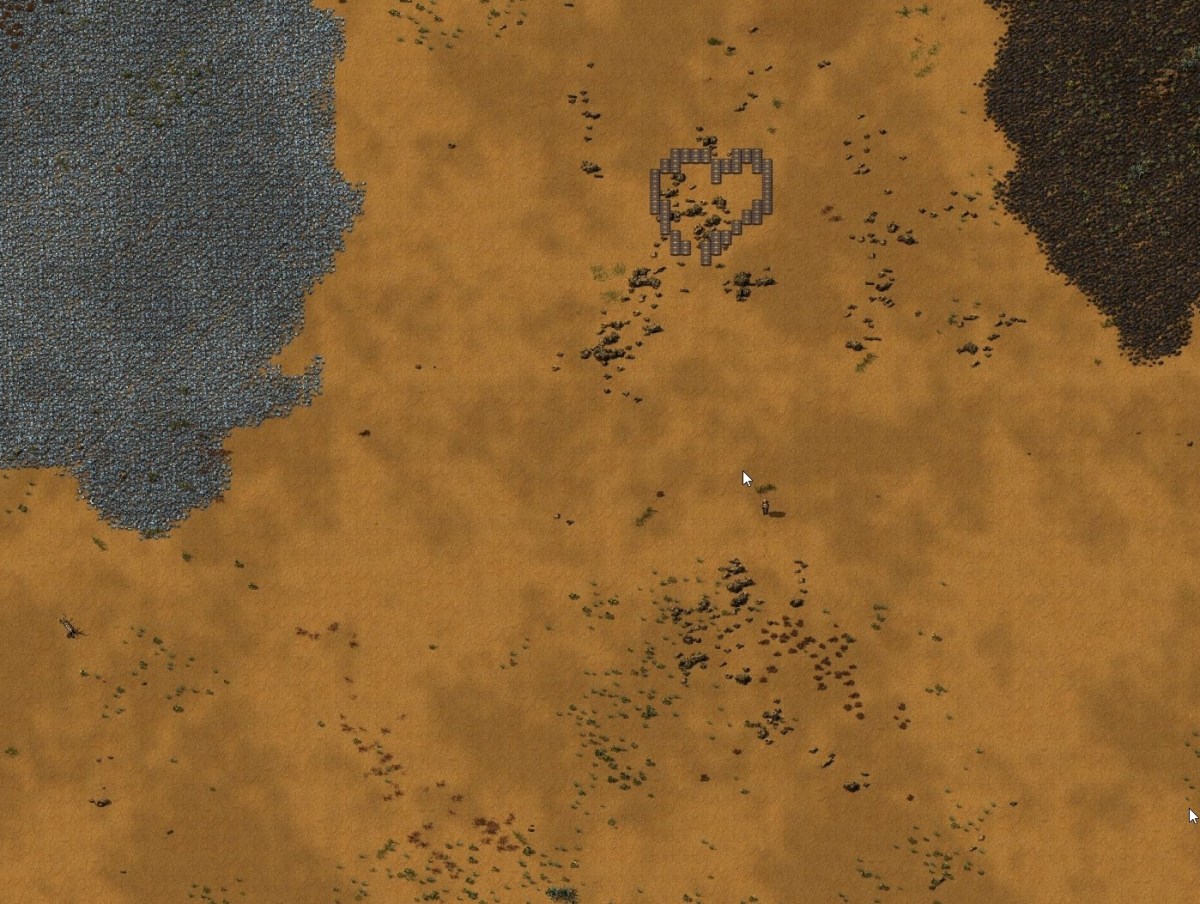Amnesia The Dark Descent: The Scariest Game You'll Ever Play
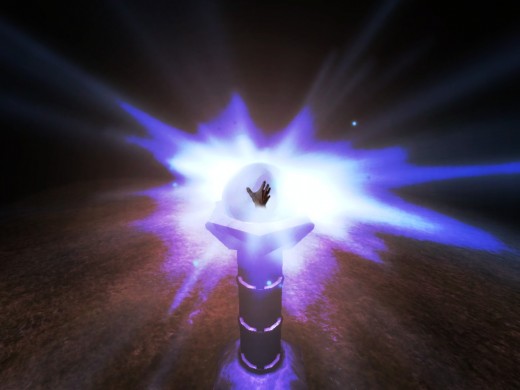
A Bit of Preamble About Scary Games
For whatever reason, people enjoy a good scare. Whether it's falling to the ground on some theme park ride or playing a scary video game, the adrenaline pumping fear of bodily harm is oddly addicting and game developers know this, which is why the entire genre of survival horror exists in the first place. The problem is, few people truly understand the underlying mechanisms that make a person fearful. So many games have attempted to scare the player and failed miserably because they haven't understood the psychology of fear themselves. They merely see fear as a visual or auditory cue.
Take Doom 3 for example. I like Doom 3. I find the game a lot of fun. But it doesn't make me fearful. It's something I'll play one day and then leave on the shelf for a few months before I feel like playing it again, which is how I treat most action games. If it truly made me afraid to play the game, I might be more inclined to play it on a regular basis because it would offer something more than big guns and fancy shadows. Doom 3 isn't scary because they use grotesque art, sound effects and startling scripted events like enemies jumping out of closets behind you, all of which you quickly get used to. When you learn the pattern that enemies tend to attack from unexpected angles, you're not surprised when they do. It's easy for the brain to adapt to such a pattern and once it does, there's no reason to fear it, just to learn the pattern. Similarly with grotesque images and strange sounds, you get used to them and they are often recycled from other games so it's not even disturbing. Everybody knows that monsters are supposed to look hideous. Everybody knows that monsters are supposed to hiss and scuttle. When you pick up a horror game to play, what would you expect? Unicorns? Certainly not. When you see a demon with dozens of eyes and horns sticking out of its body you're like, "Yeah, makes sense", not, "OMG I'm scared!".
What makes a game scary, what makes ANYTHING scary, is that:
1) You can't figure it out because it just doesn't compute somehow and you lack sufficient information to make any sense of it.
2) It looks like something that could be a serious threat to you.
3) You have no idea how you would deal with that threat or you're unable to deal with it.
4) You have ample opportunity to think about it but you're feeling more and more helpless despite your efforts.
Scary games realize that none of this boils down to a hissing sound or adding more blood to a mangled face. Frictional Games, the creators of Amnesia, get the concept.
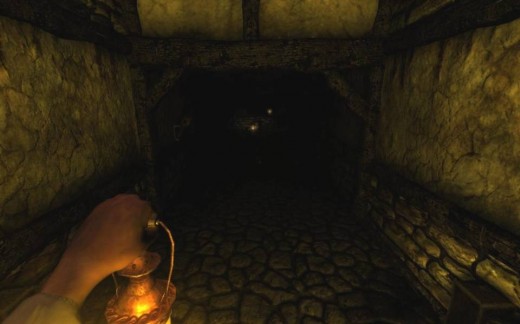
Amnesia The Dark Descent - Synopsis
This game is set in the early 19th century and the protagonist is man from London named Daniel who set out on an expedition in Africa to explore an ancient tomb. He recovered an artifact that day and ever since coming into contact with it, death has followed him. Everyone he talks to about the artifact ends up succumbing to some horrible death and Daniel feels his turn to die is near so he frantically searches for information of any kind about how to banish this thing that's haunting him. He eventually comes into contact with a Baron in a castle in Prussia, who seems to know quite a bit about Daniel's predicament, which is slightly alarming to Daniel but because he is desperate, he goes to see the Baron and puts his trust in him.
The game begins with Daniel waking up inside the castle with no memory of anything. He can barely remember his own name, hence the amnesia motif. He does however find a letter written by himself, asking him to kill the Baron and ask no further questions. Since none of the backstory is available to the player at this time, all the player knows is that he has to kill the Baron of the castle for some reason and that's it. I should point out that this game strategy of starting the player off with no information is nothing new but it's highly effective because it satisfies one of the precursors to fear... that you don't know what's going on and therefore have no way of making sense of what happens around you.
As the game progresses, the protagonist finds his own journal entries scattered about, which help restore bits and pieces of his memory but only after the game has thoroughly messed with your head. In this way, the game never becomes irritating instead of scary, for never getting an explanation of what's going on but by the time you do get the explanation, you've long since become incontinent and your pulse is double what it normally is.
Daniel discovers that the "shadow" attached to the relic he found is still haunting him but more than that, he wiped his memory of recent events because he did unspeakable things to innocent people at the Baron's request in order to ward the shadow away and ultimately cracked after realizing what a monster he'd become. Furthermore, this was all part of a deceptive plan by the Baron that in no way was designed to ward away the shadow. It was all meant to benefit the Baron and use Daniel as an expendable accessory. The story is horrific enough in itself because Daniel, initially blessed with ignorance has to re-live, for a second time, all of the awful events that took place in the castle as he searches for the Baron and stumbles across the evidence.
Amnesia The Dark Descent - The Mechanics of Fear
Where the game truly shines is in its gameplay mechanics. It doesn't slap the player in the face with fear, as many games do but allows fear to build naturally in the player by sensory deprivation, obscuring information, player vulnerability and disturbing events.
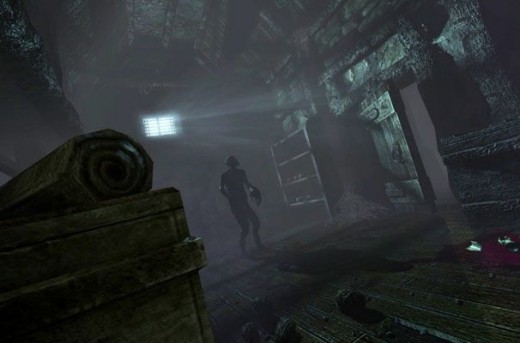
Light, Darkness and Sanity
In the game world, the lighting is very poor and the only illumination comes from point sources like candles, fireplaces, the occasional window and even when you do see a window, the conditions outside are so surreal, it's not at all comforting like you might imagine. The developers made sure to put as many unnatural hazards outside as inside so that you never felt safer hanging out near a window, when you did find one.
As I said, the game is very very dark. A good portion of it is nearly pitch black and the player's only recourse is to light a portable lamp and carry that around to light up a few square feet around the player. If he doesn't, there's a very slight night-vision effect that allows you to see just enough so you're not banging into walls but it's far too dim to locate items or see details. The lamp however burns oil, which is finite in the game so you have to use it sparingly or you'll run out. The other problem is that, "things" are wandering around and they are more likely to find you and hurt you if you mark your position with a bright light. Creeping around in the dark has consequences too however because the game incorporates a "sanity" feature, which, like your lantern oil, becomes depleted in the dark. If you lose too much sanity, you start hearing things, seeing things and eventually have a panic attack and black out. This also leaves you totally vulnerable and unable to do simple things reliably like walk in a straight line.
This perpetual need to balance sanity with lantern oil is quite ingenious because here you have 2 mutually exclusive, limited resources that drain with the passage of time. You can't save one without wasting the other. That imposes something of a time limit on the player because you can't sit around at your leisure, even in a threatening environment where taking your time would provide reassurance. You have to press onward at all times and face what lies ahead or else lose your light and sanity, then your life. Frictional games thus uses sensory deprivation to scare the player by impairing the primary information system you normally rely on to function, your vision and then they mess with your control over the character so that you can't even depend on him to be discrete or go where you tell him to go. But it's not going insane or blind that kills you. It's the "things".
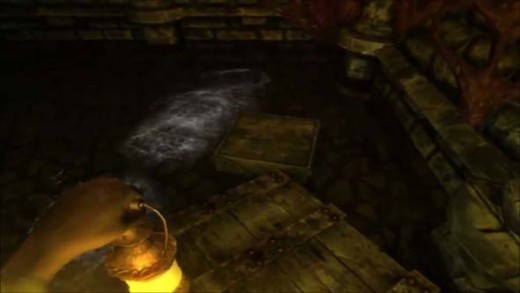
Helplessness and Vulnerability
Here's where the second game mechanic comes into play and scares the crap out of you. Amnesia tries very hard to prevent you from ever getting a clear view of an enemy. You always know the enemies are present because the game's positional sound system lets you know roughly where they are, which is sometimes deceiving when you check and don't find them there. The mind tricks only heighten the fear too because you can't make sense of the threat and therefore can't do anything to anticipate it. When the game does show you an enemy it'll be off in the distance, covered in shadow so that you can't see much detail. What you do see is a very unnaturally moving humanoid object with nondescript features. If you stare at it to discern the details more closely, your character's sanity falls like a rock and the screen becomes all blurry and wobbly, forcing you to stop staring at it. If the enemy approaches you, there's not much you can do but find a hiding spot and stare at the floor, relying on your ears to hear the thing approach, rummage around and hopefully go away on its own before it finds you. This leaves you in an incredibly helpless and vulnerable situation. You may be wondering why you can't just run up to the thing and clobber it with a pipe or shoot it. Well that's because you don't have any weapons or armor of any kind.
That's right. You have the play the whole game without a single offensive or defensive item, period! You can't fight back so you have to run, hide and avoid. This isn't how 99% of games work. Do you remember how you felt playing other common first-person shooters when you would unexpectedly run out of ammo for every weapon in the middle of a fight? Well, maybe that's never happened to you but when it does, it's briefly alarming because you can't do anything and you're at immediate risk of dying. Well that's what it's like in Amnesia all the time except that the environment is so much more still and creepy and there's no fire fights, just darkness, weird stuff coming out of the walls and "things" following you everywhere you go and missing you only because you're on the ball 100% of the time. I can tell you that when you do screw up and let one of the things see you outright, it's REALLY scary because the music (or ambient sound if you will) gets extremely... urgent and the thing chases you at an alarming speed. There's no point in looking back as you run because it's so fast you just hope you are able to open the door and shut it behind you before the thing closes the gap.
The Physics System
While we're talking about doors, the third gameplay mechanic comes into play. You don't use keys to interact with the world like you would in other games. There's no "open door" command. Everything you do, pushing, pulling, turning, lifting, throwing, it's all done directly using the mouse as you would control your hand in real life. You click and drag the mouse to simulate actually manipulating objects with your hands. It's somewhat awkward but also realistic in a way because when you're wetting yourself in fear, in the dark, shivering and your pulse is 150, you're not exactly in peak physical condition so turning a key or closing a door is a bit more difficult than it looks. When you're running like a madman from something chasing you and there's a door in front of you, it's terrifying to wonder whether it pushes or pulls open and then get it wrong the first try. By the time you're finished swinging the door open, walking through, turning around and swinging it shut, you can feel the breath of the "thing" chasing you on the back of your neck. It's downright petrifying. This realistic physical interaction system forces you into the game instead of leaving you detached from it, controlling an avatar via keystrokes. That's why you feel afraid. Because YOU are being chased and are about to die, not Daniel. There's seldom an opportunity to break from the atmosphere and remind yourself that you're safe in your house.
Amnesia The Dark Descent - Less is More
The survival horror genre is truly a realm where less is more. That's not to say that making a simple, unimaginative game is going to be successful. It means that focusing on removing all the safety nets from the player and coupling him very strongly to the game environment is key to evoking fear. Then, evoking fear is not a deliberate, forced act. It's the result of merely existing in a carefully crafted game ecology where you're not in control. Amnesia The Dark Descent succeeds at this and it's really no surprise, as they've had some practice.
Friction Games released a series of games prior to Amnesia entitled Penumbra. This series utilized the same physics system and a similar light/dark system, though it was a bit simpler. In Penumbra you also had limited use of what you might call weapons although they were more like tools you could use to inflict harm. The effectiveness of these weapons was so pathetic however that most players learned quickly not to bother confronting enemies with them. Penumbra, like Amnesia was quite scary and highly successful so Frictional Games made sure to take the lessons learned from that game and apply them to Amnesia but in so doing the upped the ante by making the player even more helpless in all respects. You have to rely on your ingenuity and wits to survive, not weapons.
Frictional Games have since continued their line of horror titles and are currently working on a sci-fi based game called Soma. It remains to be seen if they will continue to make scary games or become overly ambitious and overshoot the mark as so many other game companies have done, after their initial successes.


